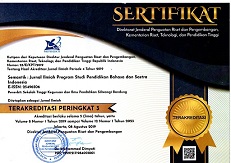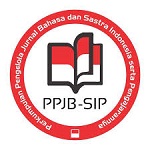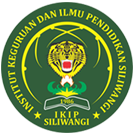INTEGRASI TEKNOLOGI DIGITAL DALAM PEMBELAJARAN MENULIS: TINJAUAN PUSTAKA
DOI:
https://doi.org/10.22460/semantik.v13i2.p277-292Keywords:
Digital Technology, Writing , LearningAbstract
The use of digital technology in education has experienced rapid development, especially in teaching writing skills. This study aims to examine the impact of the use of digital technology on students' writing skills. This study uses a literature review method with content analysis techniques to identify and understand themes that emerge from relevant literature. Data sources are taken from journal articles published from 2019 to 2024, using strict inclusion and exclusion criteria. Quantitative analysis was carried out through a meta-analysis approach to calculate the magnitude of the impact of interventions reported in various studies. The results of the study indicate that the integration of digital technology has a significant positive impact on students' writing skills. The overall impact of 0.77 indicates a substantial increase in writing skills caused by the use of digital technology. In addition, digital technology also supports collaborative and inclusive learning, which is important in the context of modern education. The implications of this study are the importance of adopting and integrating digital technology in the education curriculum to improve students' writing skills. Recommendations provided include the development of technological infrastructure, teacher training, and the development of more adaptive and collaborative digital learning resources.References
Barroga, E., & Mitoma, H. (2019). Implementing an effective writing support system in academic settings: A case study. Journal of Educational Research and Practice, 9(1), 77-89. DOI: 10.5590/JERAP.2019.09.1.07.
Belmahdi, A., Li, J., & Muirhead, B. (2022). Youth English language learners’ learning outcomes and experiences of digital technology-based writing instruction: a literature review of key empirical evidence. Journal of Digital Life and Learning, 2(1), 1-51. https://doi.org/10.51357/jdll.v2i1.166
Binangbang, J. (2020). The effect of substitution, augmentation, modification and redefinition model on students’ writing skills. Middle Eastern Journal of Research in Education and Social Sciences, 1(2), 29-51.
https://doi.org/10.47631/mejress.v1i2.131
Boote, D. N., & Beile, P. (2005). Scholars before researchers: On the centrality of the dissertation literature review in research preparation. Educational Researcher, 34(6), 3-15.
Cetin, P. S., & Eymur, G. (2017). Argumentation-based science instruction and improving students' academic achievement in writing. International Journal of Science and Mathematics Education, 15(1), 129-145. DOI: 10.1007/s10763-015-9680-3.
Demirel, G., Tolaman, T., & Azizoğlu, N. (2023). Using technology to support creative writing: how it affects teachers’ digital writing skills and their gains from digital technology. International Journal of Psychology and Educational Studies, 10(2), 422-440. https://doi.org/10.52380/ijpes.2023.10.2.1039
Engeness, I. (2018). What teachers do: facilitating the writing process with feedback from essay critics and collaborating peers. Technology Pedagogy and Education, 27(3), 297-311. https://doi.org/10.1080/1475939x.2017.1421259
Gaber, S. and Ali, S. (2022). Effectiveness of a training program in improving scientific writing skills based on APA 7 style among postgraduate students. International Journal of Learning Teaching and Educational Research, 21(11), 282-299. https://doi.org/10.26803/ijlter.21.11.16
Kementerian Pendidikan dan Kebudayaan Republik Indonesia. (2022). Laporan akses internet di sekolah-sekolah Indonesia. Jakarta: Kemendikbud.
Kharisma, B., Wardhana, A., Arsani, A., & Pasaribu, H. (2022). Planning and budgeting of tourism sector in west nusa tenggara. Economics Development Analysis Journal, 11(2), 254-268. https://doi.org/10.15294/edaj.v11i2.49198
Krippendorff, K. (2018). Content Analysis: An Introduction to Its Methodology (4th ed.). SAGE Publications.
Kurniawan, C., Purnomo, E., Fathani, A., & Fadhlurrohman, M. (2023). Sustainable tourism development strategy in west nusa tenggara province, indonesia. IOP Conference Series Earth and Environmental Science, 1129(1), 012022. https://doi.org/10.1088/1755-1315/1129/1/012022
Li, K., Razali, A., Samad, A., & Noordin, N. (2020). Effects of digital writing software as a tool for a process approach to writing on teacher trainees’ academic writing performance. The Journal of Asia TEFL, 17(4), 1346-1362. https://doi.org/10.18823/asiatefl.2020.17.4.12.1346
Little, D., Richardson, R., & Wood, R. (2018). The impact of digital technology on writing performance: A meta-analysis. Journal of Educational Computing Research, 56(2), 233-261. DOI: 10.1177/0735633117713119.
Nasri, N., Habali, A., & Adam, M. (2022). Google docs: students’ perceptions as an online collaborative tool in learning writing skills. International Journal of Academic Research in Progressive Education and Development, 11(3). https://doi.org/10.6007/ijarped/v11-i3/14611
Natsir, M., Suswati, R., Damanik, S., Pane, I., & Lubis, F. (2019). The implementation of social media to develop students’ writing skills in digital marketing. Saltel Journal (Southeast Asia Language Teaching and Learning), 2(1), 19-25. https://doi.org/10.35307/saltel.v2i1.13
Paida, A., Wahid, A., Syamsuri, A., Hasrianti, A., & Rahim, A. (2022). Facebook social media: how does it affect first-year students' description writing skills? Al-Ishlah Jurnal Pendidikan, 14(3), 2973-2984. https://doi.org/10.35445/alishlah.v14i3.2007
Rabani, S. (2023). The role of technology in indonesian education at present. J. Computer Science Advancements, 1(2), 85-91. https://doi.org/10.55849/jsca.v1i1.403
Rowland, A., Smith, S., & Lowrey, K. (2020). Pairing technology with 6 traits of writing instruction. Journal of Special Education Technology, 37(1), 135-142. https://doi.org/10.1177/0162643420945600
Sari, Y., Sumarmi, S., Utomo, D., & Astina, I. (2021). The effect of problem based learning on problem solving and scientific writing skills. International Journal of Instruction, 14(2), 11-26. https://doi.org/10.29333/iji.2021.1422a
Shufiana, A., Sulhaini, S., & Saufi, A. (2021). The influence of attitude (attd), subjective norm (sn), perceived behavioral control (pbc), and self-efficacy (se) on purchase intentions (int) and behavior (bhv) using e-commerce. International Journal of Multicultural and Multireligious Understanding, 8(12), 123. https://doi.org/10.18415/ijmmu.v8i12.3187
Snyder, H. (2019). Literature review as a research methodology: An overview and guidelines. Journal of Business Research, 104, 333-339.
UNESCO. (2021). Digital learning in the global south: Addressing the challenges. Retrieved from https://unesco.org/digital-learning-challenges.
Vicentini, C., Oliveira, L., & Gui, J. (2022). Integrating technology into genre-based writing instruction for multilingual learners. Gatesol Journal, 32(2). https://doi.org/10.52242/gatesol.167
Wang, J. (2024). Enhancing English writing proficiency in tesol: integrating traditional and technological approaches for a multifaceted learning experience. SHS Web of Conferences, 185, 01014. https://doi.org/10.1051/shsconf/202418501014
Yang, X. (2022). Research on digital teaching of creative writing in the context of computer big data. Wireless
Communications and Mobile Computing, 2022, 1-9. https://doi.org/10.1155/2022/2699833
Downloads
Published
Issue
Section
License

This work is licensed under a Creative Commons Attribution-ShareAlike 4.0 International License.
The author is responsible for acquiring the permission(s) to reproduce any copyrighted figures, tables, data, or text that are being used in the submitted paper. Authors should note that text quotations of more than 250 words from a published or copyrighted work will require a grant of permission from the original publisher to reprint. The written permission letter(s) must be submitted together with the manuscript.










